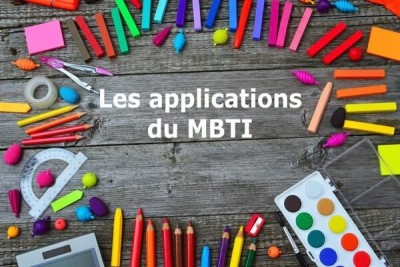How can MBTI® help you improve your leadership style, change management, and team cohesion?
MBTI® training offers numerous applications to improve your leadership style, facilitate change management, and build a strong, effective team. Discover how to do this below.
This page is based on our book on MBTI®: "Vous êtes unique, vos interlocuteurs aussi ! Collaborer efficacement et vivre en harmonie avec tous les types de personnalité".
Table of Contents
- How to Enhance Your Leadership with MBTI®
- How to Improve Your Change Management with MBTI®
- How to Develop Team Cohesion with MBTI®
How to Enhance Your Leadership with MBTI®?
There are four leadership styles based on David Keirsey’s temperament model. Your personality type leads you to naturally adopt one of these leadership styles. If your style doesn't align with your team members, communication and collaboration can become very challenging.
Learning to improve your leadership style involves mastering these four styles. This is the natural evolution of a manager who wants to go beyond basic management training.
Each leadership style can be summarized with a few key points:
- The Guardians: Seek structure, clear guidelines, and reliability.
- The Artisans: Need enjoyment at work and freedom.
- The Idealists: Focus on values, meaning of work, and employee fulfillment.
- The Rationals: Pursue competence, intellectual mastery, and strategic vision.
Each of us, depending on our MBTI® profile, tends to favor one of these styles. If your style and that of a team member don't match, communication and collaboration can become very difficult.
The Guardians
Seek structure, clear guidelines, and reliability.
Some managers excel in providing clear instructions, developing structure, and setting clear goals. They often place great importance on meeting deadlines and commitments. They are usually very reliable and expect the same from others. Regaining their trust if lost can be a long and difficult process.
These managers are often perceived as rigid and overly detail-oriented by Artisans, Idealists, and Rationals. This leadership style is generally associated with MBTI® SJ profiles: ISFJ, ESFJ, ISTJ, and ESTJ.
The Artisans
Need enjoyment at work and freedom.
Other managers excel in operational tasks. They enjoy "getting their hands dirty" and have a leadership style based on leading by example. They also seek enjoyment in their work. They are capable of tremendous energy for tasks they enjoy but can lose much of their drive when faced with boring tasks.
They often seek the fastest and most efficient way to do things and have a strong need for autonomy and individual freedom.
These managers often struggle to be taken seriously by Guardians, Idealists, and Rationals. This leadership style is typically adopted by MBTI® SP profiles: ISTP, ISFP, ESTP, and ESFP.
The Idealists
Focus on values, meaning of work, and employee fulfillment.
The third leadership style is based on seeking alignment with values and finding fulfillment in and through work. Idealist managers enjoy coaching their team members and having a hierarchy that supports their professional development.
This leadership style often proves ineffective with Guardians, Artisans, and Rationals. The Idealist manager is often seen by others as a dreamer or as someone lacking authority or practical sense. This leadership style is typically adopted by MBTI® NF profiles: INFP, ENFP, INFJ, and ENFJ.
The Rationals
Pursue competence, intellectual mastery, and strategic vision.
The final leadership style is based on seeking competence, intellectual mastery, a strategic vision, and coherence between this vision and the actions taken.
This type of manager is often perceived as inhuman by Idealists and some Guardians and Artisans, and as too abstract and detached from practical realities (the "ivory tower") by most Guardians and Artisans.
This leadership style is typically adopted by MBTI® NT profiles: INTP, ENTP, INTJ, and ENTJ.
David Keirsey’s temperament model is one of the keys frequently used in differentiated coaching to optimize the coaching process based on the coachee’s profile.
We all have a preference for one of the four leadership styles, both as managers and as team members.
How to Improve Your Change Management with MBTI®?
How many times have we heard, "he's allergic to change," or "she's afraid of change"? Yet, often the problem doesn't stem from the person but from the way change has been communicated to them. MBTI® offers a straightforward framework for the four styles of change management and how to communicate change based on your team member’s profile:
SJ personality types value successful past experiences. They like to preserve what works well and need a concrete explanation of the improvements brought by a change project and the steps to follow.
SP MBTI® profiles like to explore opportunities as they arise. Avoid long speeches, brainstorming sessions, overly theoretical approaches, and long-term strategies with them.
NP MBTI® types enjoy exploring new ideas, and brainstorming is welcome with them.
Finally, NJ MBTI® personalities need a long-term strategic vision.
Using the four MBTI®-related change leadership styles adds essential value to change management training.
SJ profiles are often labeled as resistant to change. Their reactions are often due to change management that is not adapted to their profile.
How to Develop Team Cohesion with MBTI®?
MBTI® helps you better understand your colleagues and communicate more productively with them. Misunderstandings become much less frequent, and relationship difficulties are eased.
A lesser-known application of MBTI® in team building is identifying roles that are under- or overrepresented within a team. This team cohesion intervention helps build teams with more balanced and productive functioning. Indeed, all roles are necessary for a team’s proper functioning; but sometimes, certain roles are exaggerated (played too often, by too many members, in a caricatured way) or not exercised enough.
MBTI® allows us to transform individual differences into sources of strength.
Jean-Luc Dupont
MBTI Trainer
DetP Développement professionnel Inc


